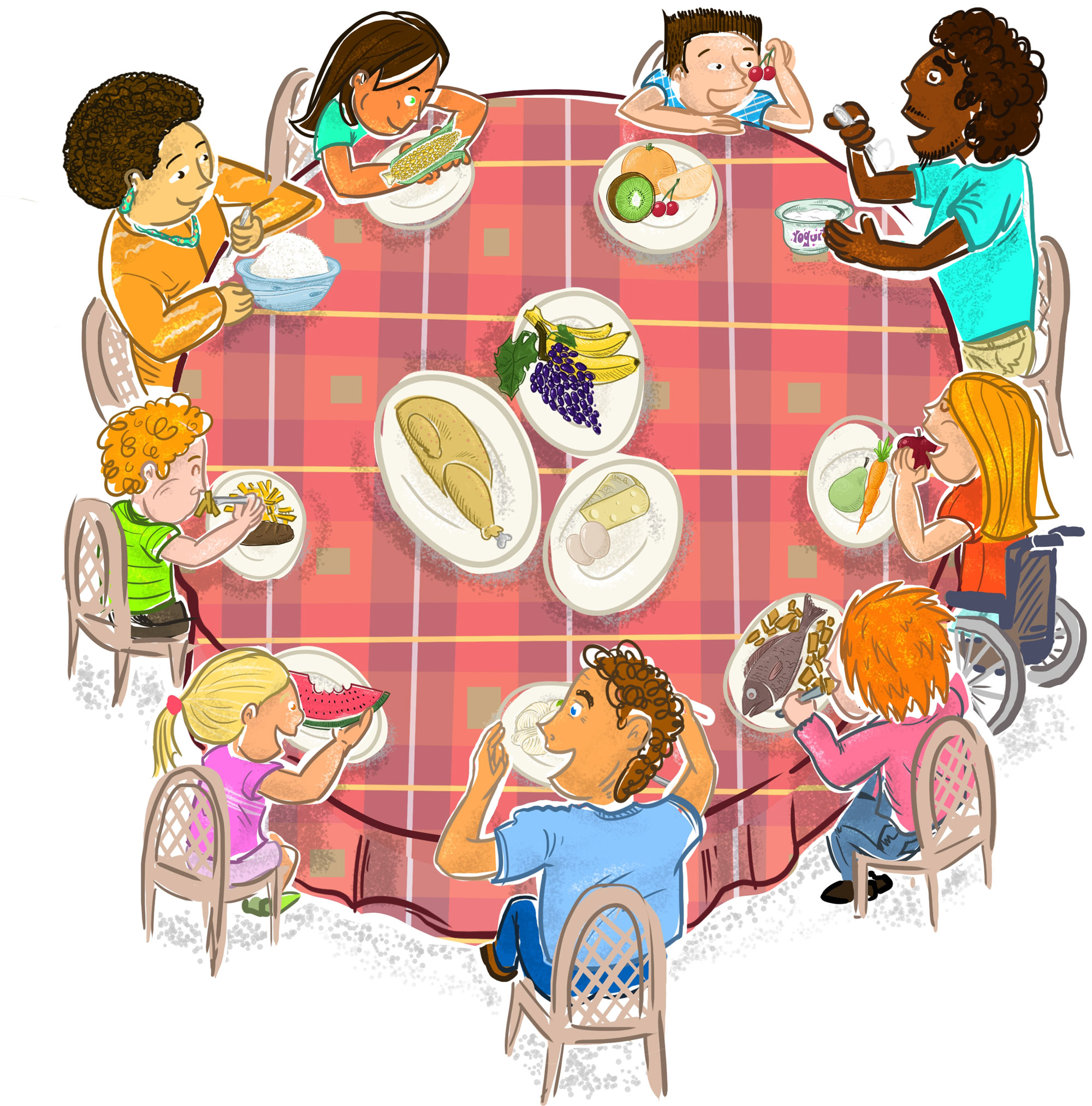
A Roman proverb states that you cannot argue about personal taste. Indeed, what kinds of food and drink we like or dislike, and how we prepare and have our meals, is part of our personal identity. In so doing, we exercise our human right of personal freedom (UDHR, article 3). This indicates that the way we satisfy our basic needs of eating and drinking has human rights and social dimensions that lead to the core of EDC/HRE. Liberties carry responsibilities. Our nutritional habits affect our health and life expectancy to a considerable extent. Thus, we are largely responsible for our own well-being. Our responsibility extends beyond that, however. If we choose to buy zucchini or melons in the summer, for example, we can support local producers. Conversely, if we insist on buying such produce in the winter, we fuel the global supply chain, which has a considerably larger environmental footprint. It is, however, nearly impossible to sidestep globalized pro-duction completely.
We suggest that schools encourage young people to reflect on their nutritional habits, wishes, wants and needs. Girls and boys of whatever age are quite aware of their own nutritional habits. Thus, evaluating the kinds of foods and drinks we choose, and how to prepare them, is a life-long learning process.
The school has the opportunity and the potential to raise students’ awareness of the consequences of their nutritional choices and habits. It should encourage students to assume responsibility for their own personal well-being, concern for the health of society, as well as the planet (Competences for Democratic Culture, p. 41 f.). Thus, students can develop an attitude of self-efficacy and awareness of their competence development about good nutrition and how to make use of it. (Competences for Democratic Culture, p. 42 f.).
Moreover, schools in pluralist societies often represent micro-communities, encompassing students from different immigrant communities, religions and cultures. Even the so-called native students are far from forming a homogeneous group. Thus, providing students and their parents with the opportunity to showcase their traditions, ways of preparing meals, and sharing them with others, can render people more open-minded towards those whom they experience as being different. The “openness to cultural otherness and to other beliefs, world views and practices” (Competences for Democratic Culture, p. 39 f.) is an attitude that helps to protect a democratic society from falling prey to racial hate and prejudice.





